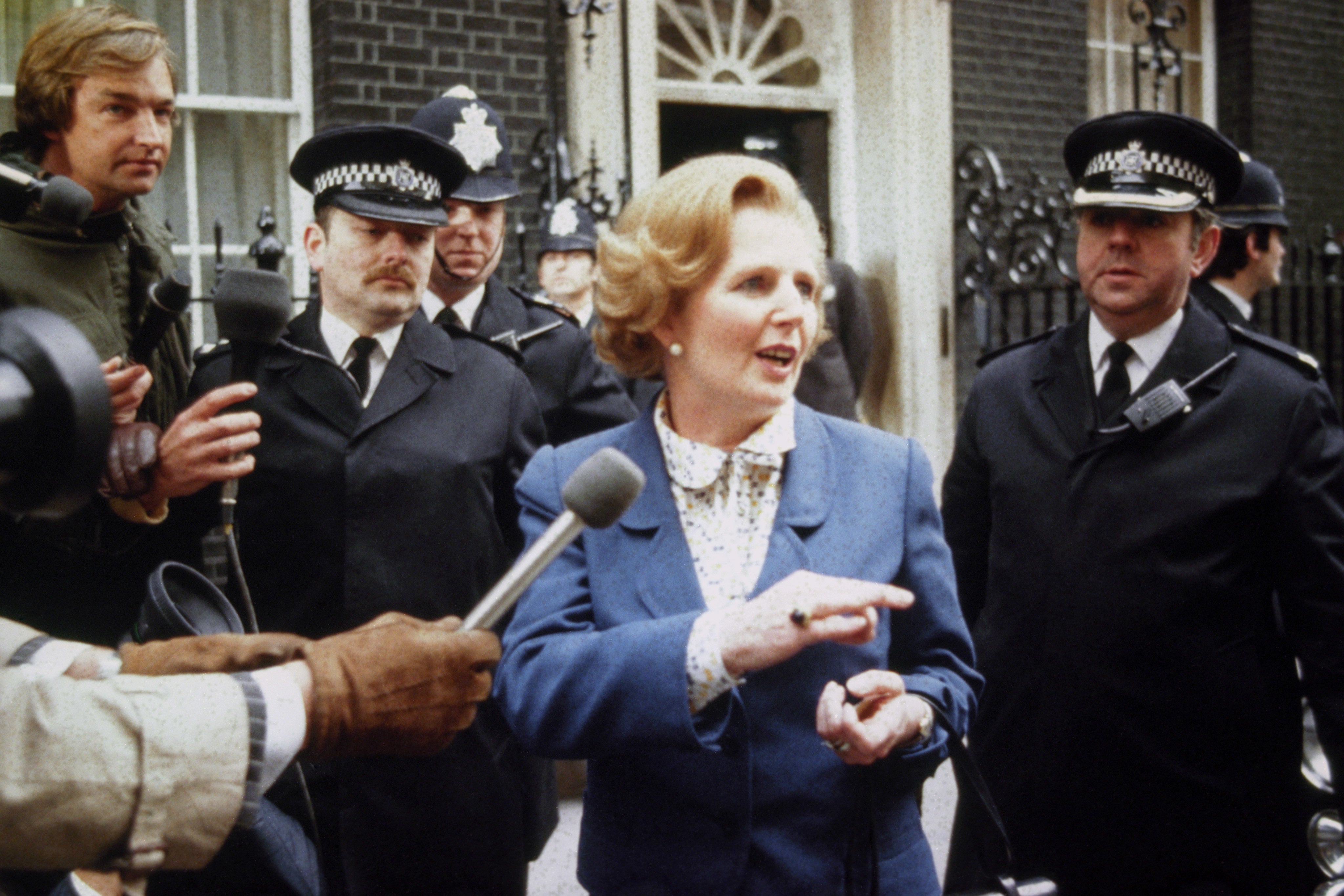Why Keir Starmer is right to emulate Margaret Thatcher rather than Blair
Faced with a country in the doldrums and riven with trade union unrest, Keir Starmer could soon inherit a prime minister’s in-tray that looks similar to 1979 rather than 1997, says Andrew Grice. Like Britain’s first female PM, the Labour leader will need a serious – and memorable – three-point plan


Labour has a plan for the general election. We saw more of it this week as Keir Starmer redoubled his efforts to win over Tory voters, a lot of whom still hover in the “don’t know” column.
The Labour leader grabbed a rare positive Daily Mail front page yesterday, with a long-term commitment to the UK’s nuclear deterrent, after Wes Streeting promised NHS reform in The Sun.
Although YouGov warns that Labour’s stance on Gaza and U-turn on green investment risk alienating progressive voters, Team Starmer is unrepentant.
However, Labour doesn’t yet have a plan for government, and it’s now a matter of urgency. If Rishi Sunak had called a 2 May general election, Labour had a campaign ready – but now has some precious months to better prepare for government.
An incoming administration needs to arrive with a clear, overriding purpose and a few key policies. If there are too many conflicting priorities, ministers are set against each other – especially when money is tight, as it would be for Labour this year. It shouldn’t underestimate how easy it is for any government to be blown off course by “events”. Starmer will need some anchors.
As Labour showed this week, it’s easy to garner headlines in opposition, when a close-knit team can mount guerilla attacks on the government. Running a whole government is much harder – and some Labour ministers would never have run anything.
Starmer’s five missions are a start but need to be fleshed out. Firstly, for a retail offer at the election – particularly one that will cut through in the red wall – and, more importantly, into a blueprint for what to do in power.
Labour politicians are naturally keen to learn lessons from Tony Blair’s 1997 victory after a long period of Tory rule. Yet rather than try to emulate Blair, they should think about the 1979 election, when Margaret Thatcher had a clear narrative – not just for the election, but for government. Although “Thatcherism” developed gradually, she had a plan to redistribute power by curbing trade unions after the Winter of Discontent; reward “hard work” with tax cuts and allow council tenants to buy their homes.
What is Labour’s three-point plan today? I don’t know; I should by now. Having looked at the party’s campaign documents, it would probably be: “Get Britain building again; get the NHS back on its feet; and break down barriers to opportunity.” All very worthy, but hardly the same ring Thatcher had.
A clear sense of direction also gives the civil service the clarity it wants and needs. Starmer’s “mission-led government” will have to be imposed on day one. Otherwise, the Treasury might stymie sensible ideas like cross-departmental working and budgets, and Sir Humphrey will make the case for a review on X and consultation exercise on Y.
Although Blair won a landslide, his first term was not a good model for Starmer. Blair admits he should have launched his reforms earlier. After six months in office, he complained the government machine was a Rolls-Royce parked outside No 10 that he wasn’t allowed to drive. Message to Starmer, especially if he wins big: use your political capital when you have most of it – at the start – as it will soon drain away.
There are also lessons from the last time power changed hands in 2010. A study published this week by the Future Governance Forum think tank has plenty of good advice: get your U-turns in before the election, not afterwards; don’t ditch the previous government’s policies for the sake of it; don’t waste too much energy changing the names of Whitehall departments; don’t become captured by civil servants but don’t treat them as the enemy; keep a strong core team at the centre so ministers don’t become isolated in their departments, while avoiding “micro-management” from Downing Street.
Phil Tinline, the author, wrote: “The prospective government’s purpose should be established in narrative form before it takes office, making clear to the electorate how such a government would improve their lives. It is worth identifying a single image that captures what this would look like.” Asked how ready Labour is today, Tinline said some shadow cabinet members are better prepared than others but added: “My impression is that there is plenty of work to be done” – notably on Starmer’s signature policy of more housebuilding.
No amount of learning lessons and training can prepare a relatively inexperienced Labour team of ministers and advisers for the culture shock of entering government: the 24/7 work pressure; the endless red boxes; conflicting demands to spend money you don’t have; difficult dilemmas and unexpected events, often beyond your control. Better than the impotence of opposition? Yes – but only just.





Join our commenting forum
Join thought-provoking conversations, follow other Independent readers and see their replies
Comments